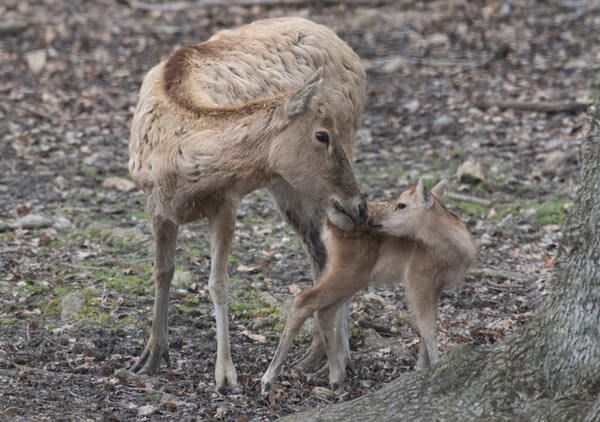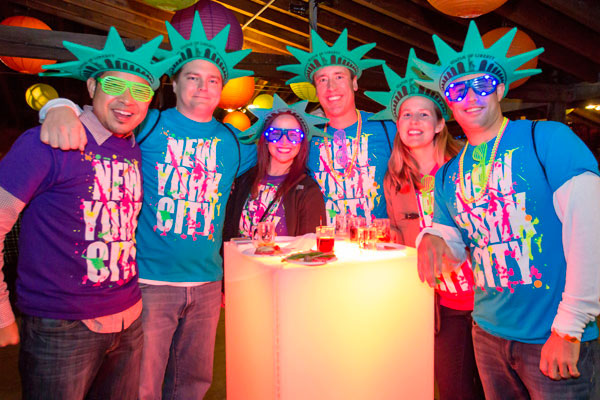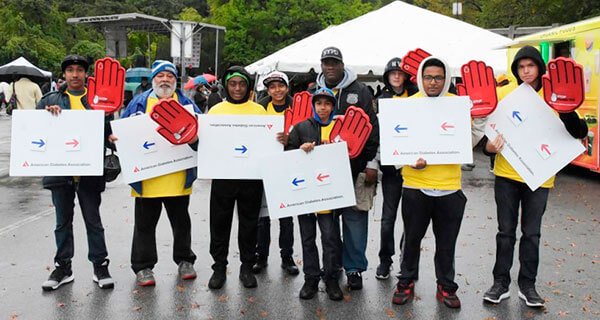Advocates pushing for the release of the Bronx Zoo’s Asian elephant Happy into an animal sanctuary took a blow on Tuesday when the state’s highest court voted 5-2 to reject an animal rights group’s argument that Happy was being illegally and solitarily confined at the zoo.
At the center of the long-awaited Court of Appeals hearing was whether the legal principle of habeas corpus, which guards against illegal detention, should be extended to emotionally complex and intelligent animals. On that topic of law, state Chief Judge Janet DiFiore said, that while Happy is a complex animal — “a cognitively complex nonhuman animal” who was the first of its kind to pass a mirror self-recognition test, according to the Nonhuman Rights Project — she’s not a person.
“While no one disputes the impressive capabilities of elephants, we reject petitioner’s arguments that it is entitled to seek the remedy of habeas corpus on Happy’s behalf,” wrote DiFiore on behalf of the majority. “Habeas corpus is a procedural vehicle intended to secure the liberty rights of human beings who are unlawfully restrained, not nonhuman animals.
DiFiore stated that nothing in legal precedent, provides support for the notion that the writ of habeas corpus — which may be obtained by any “person” who has been illegally detained, oftentimes in the Bronx on behalf of prisoners on Rikers Island — is or should be applicable to nonhuman animals.
The Court of Appeals’ decision on Tuesday mirrors similar verdicts on the lower level which expressed favor for the Wildlife Conservation Fund, who owns the Bronx Zoo, in their long legal fight with the Nonhuman Rights Project (NhRP), a New York-based legal nonprofit. The group had pushed to remove the 51-year-old elephant from the Bronx Zoo, saying she was imprisoned in her one-acre enclosure.
But the Wildlife Conservation Society, which operates the zoo, rejected this description, saying Happy and her fellow elephant at the zoo are well cared for. The Wildlife Conservation Society, which manages four New York City wildlife parks in addition to the Bronx Zoo, has never faced charges of abuse against their elephants. The conservation society did not respond to multiple requests for comment.
Despite the ruling, Happy’s legal team has set a landmark legal precedent, as Happy became the first nonhuman animal to have a writ of habeas corpus argued on its behalf in an English-speaking jurisdiction. The road for the NhRP to get a writ of habeas corpus on behalf of the elephant had been a process that’s taken six years in various courtrooms and rulings against them, Happy’s legal team told the Bronx Times in a prior interview.
“[Happy’s] captivity is inherently unjust and inhumane,” wrote Rivera in her dissent. “It is an affront to a civilized society, and every day she remains a captive — a spectacle for humans — we, too, are diminished.”
Wilson, in his dissent, said he worries that the court’s decision denies and denigrates “the human capacity for understanding, empathy and compassion.”
The dissents, NhRP told the Bronx Times, serve as vindication for advocates who have long bemoaned animals being kept in captive environments at zoos. Happy’s legal team said it will “consider our legal options and next steps in New York,” after further analysis of the court’s decision and dissents.
And Happy’s case could be a launchpad for future cases and legal challengers of other animals held in similar captive situations. The NhRP currently has elephant rights cases underway in California, and said they plan to use the Court of Appeals’ dissents in other cases nationwide.
“What’s clear right now is that these dissents, as well as the fact that Happy had a hearing in the highest court of the state in which she’s been imprisoned for half a century, offer tremendous hope for a future where elephants no longer suffer as Happy has and where nonhuman rights are protected alongside human rights,” NhRP said in a statement. “At the same time, this is not just a loss for Happy, whose freedom was at stake in this case and who remains imprisoned in a Bronx Zoo exhibit. It’s also a loss for everyone who cares about upholding and strengthening our most cherished values and principles of justice — autonomy, liberty, equality, and fairness — and ensuring our legal system is free of arbitrary reasoning and that no one is denied basic rights simply because of who they are.”
Happy was caught in the wild in 1971 and sold for $800 to a defunct California-based Zoo. In 1977, proprietors relocated Happy and five other elephants to circuses and zoos across the U.S., with Happy and another elephant, Grumpy, sent to the Bronx Zoo to be part of the then newly created Wild Asia Monorail exhibit.
In 2006, the Bronx Zoo announced no further elephants would be acquired, a measure taken by other zoos after calls from the public and animal experts stated that elephants do not belong in captivity thus affecting their natural behaviors as social creatures.
Reach Robbie Sequeira at rsequeira@schnepsmedia.com or (718) 260-4599. For more coverage, follow us on Twitter, Facebook and Instagram @bronxtimes
























